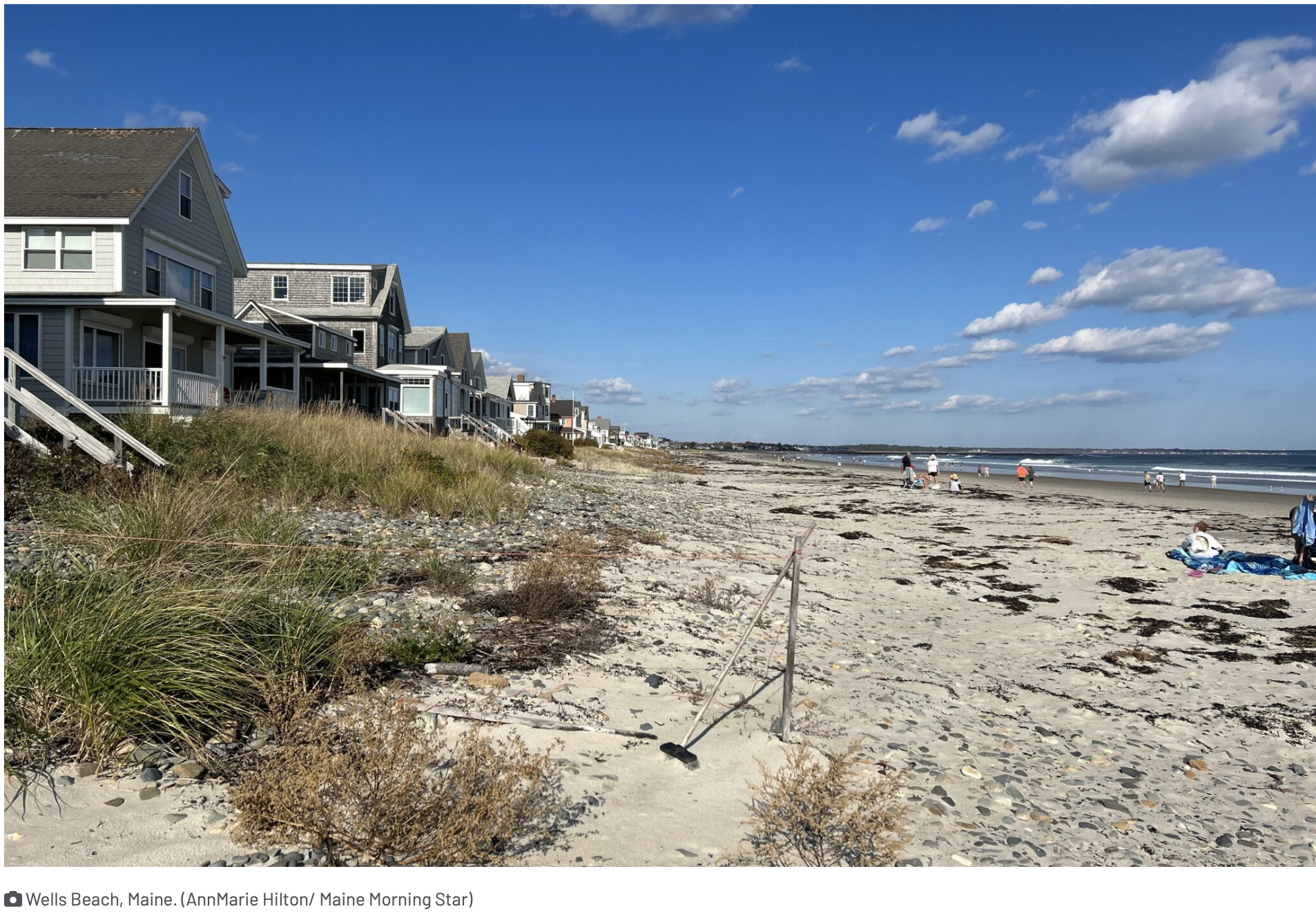Case asks to expand beach access
Case seeking to expand coastal access headed to Maine Supreme Judicial Court
“Our relationship to the coast is ever-evolving and it’s evolved a lot since the 1989 decision.”
BY: ANNMARIE HILTON - FEBRUARY 13, 2024 8:11 PM
A group of Mainers who want to protect access to the coast are taking their case to the state’s highest court after a Superior Court Justice denied a motion to affirm the right of residents to walk on and use intertidal land. (Maine Morning Star, Feb. 13, 2024)
According to the plaintiffs’ attorney Benjamin Ford, Justice John O’Neil denied the motion brought by Maine Attorney General Aaron Frey in because he felt he didn’t have the authority to overturn the original ruling that limited access, Bell v. Town of Wells.
“We were expecting this,” Ford, a principal with Portland-based law firm Archipelago, told Maine Morning Star.
Ford said the plaintiffs — 21 individuals who represent a cross section of society including a research professor, backlot owners and people who make a living on the water — will appeal the case to the Maine Supreme Judicial Court.
The original case dates back to 1989, when the Maine Supreme Judicial Court ruled that private landowners along the coast own all the way to the low-tide mark, but the public could use the intertidal zone for “fishing, fowling and navigation.” A judge reaffirmed that property belongs to private owners in a 2022 decision, but didn’t rule on public use of the land, as reported by the Portland Press Herald.
A survey conducted last spring by Digital Research Inc. of Portland found that most Maine residents indicated strong support to protect public use of the state’s beaches and intertidal lands.
What is ‘fishing, fowling and navigation’ in 2024?
The plaintiffs also asked the judge to weigh in on what common beach activities today would be considered “fishing, fowling and navigation.” Ford said they came up with dozens of ways people use intertidal lands, including building sandcastles, sunbathing, researching invasive species and playing bocce.
“Unfortunately, the court decided to not take our request to opine …as to where fishing, fowling and navigation stop and trespassing starts,” Ford said.
Ford gave this example: It’s generally agreed that running would fall under navigation. But what if someone stops to stretch? How long can they stand there stretching before it becomes trespassing?
Although the overall decision was expected, Ford said the plaintiffs were “disappointed” the judge wouldn’t consider whether those would be appropriate public uses.
While this litigation has been years-long, Ford said the storms in January that decimated parts of Maine’s coast illustrated a “powerful point” in this discussion: “Our relationship to the coast is ever-evolving and it’s evolved a lot since the 1989 decision.”
Those storms exposed major infrastructure challenges, Ford said, so the courts need to update the law to keep up with the changing times.

